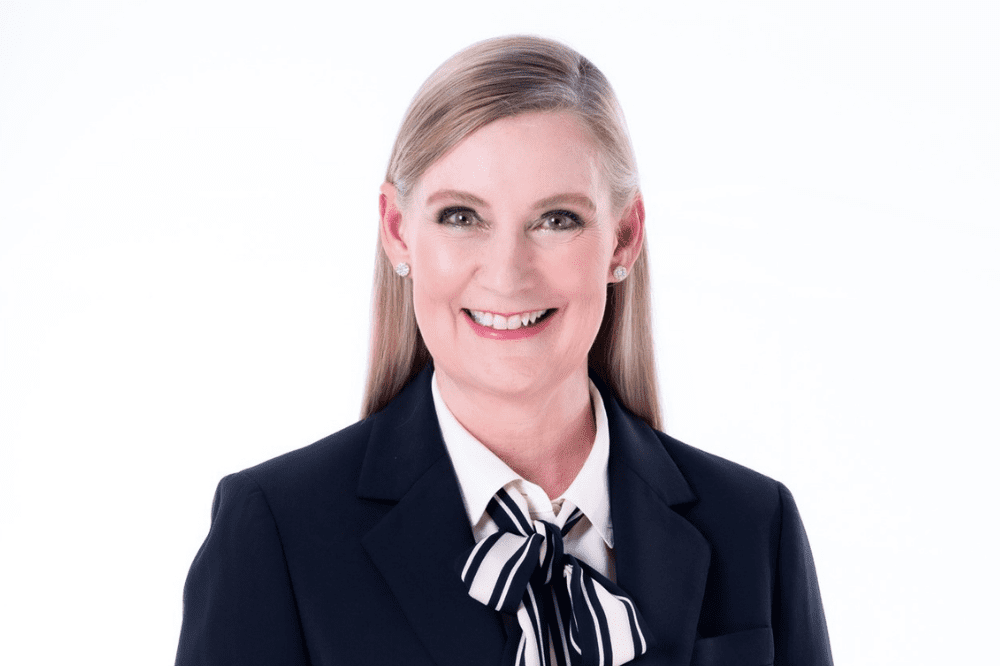Working towards gender parity in the insurance industry

Prior to joining Krungthai-AXA in 2018 as CEO, O’Hara worked for the Thai businesses of global insurers Chubb and Allianz. She has been recognised by various insurance and business publications, including the Women Worth Watching Award from Diversity Journal in 2019.
While she was born and raised in Australia, O’Hara has lived and worked in Thailand for more than 20 years. She said that learning to speak Thai took time, and she felt very proud to achieve fluency in the language.
O’Hara, citing Grant Thornton’s Women in Business 2019 report, said that Thailand’s approach to diversity and inclusion in business has seen progress over the last decade. Thailand has 33% of CEO/managing director roles belonging to women – higher than ASEAN region’s average of 21% and more than double the global average of 15%.
“While this has been encouraging, equal representation is still far from being achieved,” she said. “The business community has taken a variety of steps to improve the situation, with the three most common ones including creating an inclusive culture, enabling flexible working and reviewing recruitment approaches. At AXA, inclusion and diversity are closely linked to our values, and to our culture of respect for employees, customers, and the communities around us. We aim to create an environment where everyone feels they belong, are included and can thrive.”
KTAXA appointed O’Hara as its first female CEO in 2018 and currently has more than 50% of executive spots occupied by women.
“The company provides attractive maternity and paternity benefits, which are critical in achieving gender balance at all levels,” O’Hara said. “We also implemented a global parental policy encouraging both parents (including same-sex parents) to take fully paid leave when a child comes into the family. We organise workshops for all staff to increase their awareness of unconscious bias and help them take steps to reduce the likelihood that bias will impact their decisions. In March, Krungthai-AXA also celebrated International Women’s Day by launching a mentoring program for female talents, under the theme ‘Break the Bias’, to strengthen their leadership capabilities. Each year, we monitor any gaps in equal pay and take steps to fix any unjustified gaps where necessary.”
According to O’Hara, promoting gender parity has resulted in positive business outcomes for KTAXA, which, in some cases, performed better than the wider AXA Group.
“[Gender parity] has helped us to expand the talent pool, as KTAXA is recognised as a company that is committed to and embraces D&I,” she said. “As a result, potential candidates from all walks of life and other countries are attracted to the organisation, knowing they can flourish with us and realise their full potential. The company has also benefited from a broader range of perspectives and ideas. For example, inspired by one of our visually impaired staff members, KTAXA launched Voice Policy, an application that allows customers with reading difficulties to have access to their insurance policy contract via audio. Diversity also enables us to better understand and meet the needs of our customers – both locally and regionally.”
One of the broader measurable impacts of KTAXA’s D&I efforts is achieving an inclusion net promoter score of 76, the highest among AXA units worldwide. KTAXA’s 2021 inclusion survey found that 95% of its employees feel that they are well-included in the organisation with a great sense of belonging, exceeding the AXA Group’s result of 86%.
“In addition, 87% of our employees perceive that they have equal opportunity to grow,” O’Hara said. “As employees feel more included, they are more motivated and engaged. Krungthai-AXA’s overall employee net promoter score was 74, which was also number one among AXA entities worldwide. This shows that our employees would strongly recommend Krungthai-AXA as a place to work.”
Amid these achievements, there is still more work to do to achieve gender parity in the industry, O’Hara said.
“The insurance industry needs to recognise that it is important to nurture women and empower them to grow,” she said. “This can be achieved by introducing supporting measures and creating an agile environment that accommodates different forms of flexible work arrangements to respect work-life balance. Another area that we can work on is to offer more trainings that cater to the needs of female employees.”
Some of this training include tailored self-esteem and confidence building workshops for women and minorities, sponsorship programs where executives can sponsor less senior women or minorities and help them gain connections and access opportunities to facilitate their advancement in the company, leadership programs for women moving up the career ladder, as well as various programs and workshops that focus on addressing unconscious bias.
“It can also be helpful to organise more talks by women senior executives to share their personal and career stories,” O’Hara said.





